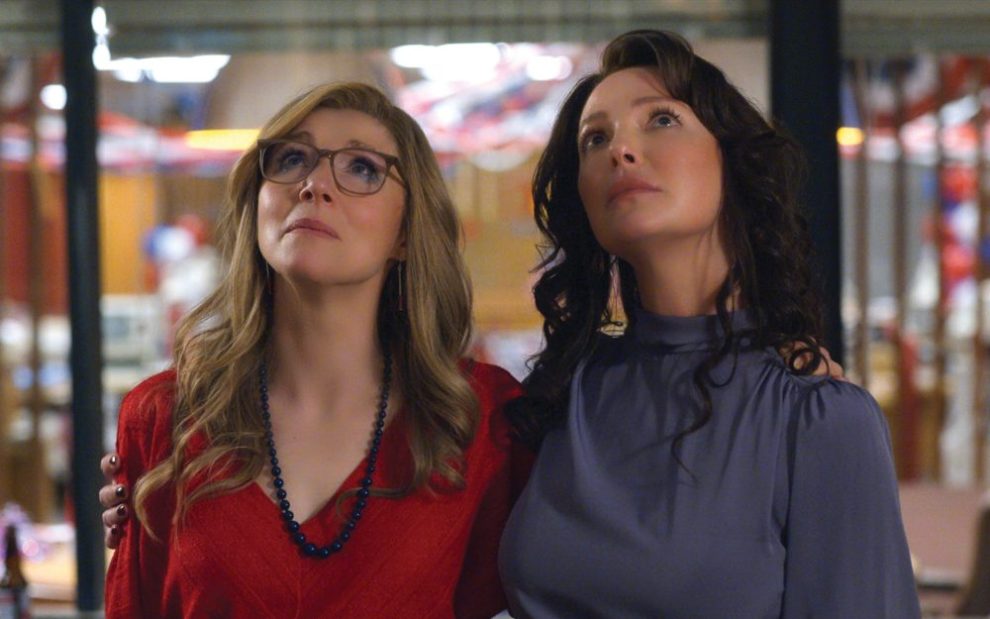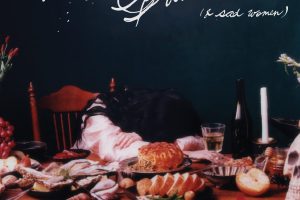A television series doesn’t have to tell all the truths about life, so it’s forgivable that Netflix’s Firefly Lane is a bit myopic in its narrative of two women who are lifelong best friends.
Firefly Lane gets a lot right.
Tully (Katherine Heigl) and Kate (Sarah Chalke) are compassionate, fierce friends who meet in high school in the 1970s and stand by each other (most of the time) through their 20s, 30s, and 40s.
Hooray for a series celebrating female friendship. Hooray for story lines about things that happen to women: bad men, inadequate mothers, sexism at work, and the withering rejection only a teenager can deliver. Hooray for LGBTQ characters. And hooray for including men, love, and sex but not making them the point of every darn plotline.
Commendably, the series spends more than one episode on a date rape, recognizing the enduring damage of such an assault. It does the same with miscarriage, long-overlooked as genuine trauma and loss in a woman’s (or any parent’s) life.
Frequent time-traveling flashbacks sometimes disrupt the narrative just when you wish it wouldn’t, but the trips to ’70s and ’80s fashion and home decor are a hoot. A pink kitchen! Workout headbands and leotards! Sideways ponytails!
Tully’s business attire as a TV news personality—heavy eyeshadow, power suits, and pounds of jewelry—from the overdressed ’80s helps reflect the period’s confused workplace gender dynamics, even when the script skitters lightly over sexism, unfair compensation, and sexual harassment on the job.
Heigl and Chalke, accomplished actresses capable of portraying complex characters, are compelling to watch—even when they are sometimes wringing a thin script for too-rare bits of nuance or wit. Their chemistry and affection for each other are believable, charming, and warm.
Alissa Skovbye and Roan Curtis play the young Tully and Kate, respectively, with depth and authenticity. Flashbacks to their high school years are some of the most poignant storytelling of the series. They ought to have played the duo in college—it’s an uncomfortable stretch to watch Heigl and Chalke try to be freshmen.
Supporting actors solidly anchor sometimes unrealistic plot points in a semblance of reality: Ben Lawson as Kate’s handsome Australian husband, Chelah Horsdal as Kate’s chain-smoking mother, Martin Donovan as a sleazy Harvey Weinstein clone, and Brendan Taylor as the overlooked yet essential Mutt.
Filmed in Vancouver, Canada, the series is well made, with high production values and beautiful homes the characters couldn’t afford in real life—but the scenery (and fabulous kitchens) are half the viewing fun.
The series is only two seasons long, ostensibly because it’s based on a two-book series by Kristin Hannah. Unusually, the second season is split into two chunks. The first half debuted last December. The second half will be released this June.
Here’s where Firefly Lane misses an opportunity or two.
Female buddy series and films are rare and welcome, but it’s time for the genre to grow up. Enough already with the tired formula of one friend being ambitious and the other friend being a wife and mother. This either–or option for women went out with pantyhose. Or should have.
Also outdated is the smug idea that if a woman doesn’t have a family, it’s because something is deeply wrong with her—childhood trauma, a drug-addled mother, or her own selfishness. Of course, life without children is a fine choice, and sometimes it’s not a choice at all but a heartbreaking matter of fertility health.
The differences between the two women are predictably drawn. Tully is sexy, boy-savvy, and career-driven. Kate is a mom, so she must be depicted as socially clumsy, professionally unpolished, and inclined to snort while laughing. Hint to producers: Smart, intriguing women reproduce too.
Kate’s awkwardness drags on far too long. OK, she’s a nerd in high school. But through the next three decades, her haplessness is so unrelenting that it boggles the mind how Tully (never mind Kate’s husband) endures it. At some point in life, a woman starts to carry herself with some dignity. Kate might have been granted that.
Surprisingly missing from a series about two entwined lifetimes are actual lump-in-the-throat moments. The characters experience crises and significant challenges, but the scenes that should bring a tear to the eye feel performative rather than deeply evocative.
Then there’s the near-constant alcohol consumption. Why? Maybe this is an attempt to show that girls can drink like boys, but it’s boring—it doesn’t add character development, plot nuance, or insight. I began to wish for an episode in which the characters head to Alcoholics Anonymous and dry out.
As one of my best friends is fond of saying, “Men come and go, but girlfriends are forever.” Firefly Lane honors the place of friendship in life, and that’s a worthy thing.
A woman-centered series need not address every female experience, though a little realistic diversity is overdue. It’s time for a dumpy CEO and a flashy stay-at-home mom. Let’s see an elementary principal mom with a teenage son who considers her his role model. Characters could meet and converse in places other than bars, and some of them could drink iced tea. But sadly, most journalists don’t make enough money to live in penthouses and buy diamonds. Bummer.
This article also appears in the March 2023 issue of U.S. Catholic (Vol. 88, No. 3, pages 36-37). Click here to subscribe to the magazine.
Image: Courtesy of Netflix














Add comment